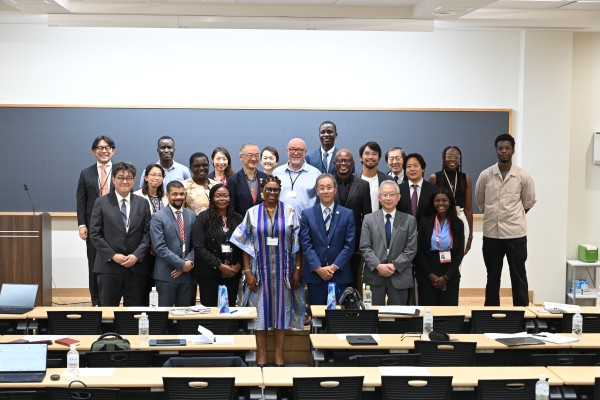AfDB Backs African Universities as Innovation Hubs Driving Growth and Jobs
The African Development Bank (AfDB) has reaffirmed its commitment to supporting African universities as hubs of innovation, entrepreneurship and social transformation, stressing their central role in driving the continent’s long-term development.
Speaking at a symposium held on the sidelines of the Ninth Tokyo International Conference on African Development (TICAD9), AfDB Vice-President for Regional Development, Integration and Business Delivery, Nnenna Nwabufo, described universities as “vital allies” in shaping Africa’s future.
“As Africa’s premier development finance institution, the African Development Bank sees universities not only as centres of learning, but also as drivers of innovation, engines of entrepreneurship, and catalysts for societal transformation,” she said in her keynote address.
The symposium, titled From Campus to Community – University Collaboration between Africa and Japan for Real-World Change, was hosted by the University of Tokyo and co-hosted by the University of Pretoria in partnership with the AfDB. It explored how academic partnerships between Africa and Asia can accelerate co-creation, skills development, and opportunities for young people.
Keynote contributions were also delivered by Dr Teruo Fujii, President of the University of Tokyo, and Dr Francis Petersen, Vice-Chancellor of the University of Pretoria, whose message was read on his behalf. Both underlined the importance of Africa–Japan cooperation, innovative partnerships and the social impact of higher education.
Panel discussions examined how universities can strengthen entrepreneurship and innovation. Professor Frans Swanepoel, Head of the Wits School of Governance, stressed the importance of skills development for Africa’s youthful population, noting that education is pivotal for entrepreneurial success.
The AfDB also showcased its support for higher education through initiatives such as the Japan Africa Dream Scholarship, which since 2017 has enabled African students to pursue postgraduate studies in critical fields including energy, health, agriculture, engineering and sustainability. To date, 41 students have benefited, with placements across both Japanese and African universities.
One recipient, Mary Yeboah Asantewaa from Ghana, shared how the scholarship opened career pathways that led her into healthcare and innovative drone technology projects tackling malaria.
The Bank outlined five priority areas to leverage the potential of universities: integrating them into national investment programmes; financing skills and innovation ecosystems; fostering university–industry partnerships; supporting entrepreneurship hubs and technology parks; and building platforms for knowledge exchange to attract investment.
Nwabufo concluded: “Africa’s future depends on strong and empowered universities that go beyond producing knowledge to becoming active agents of change. Partnerships between African and Japanese universities are one sure way of fostering long-term collaboration, as today’s trainees will be tomorrow’s leaders.”



